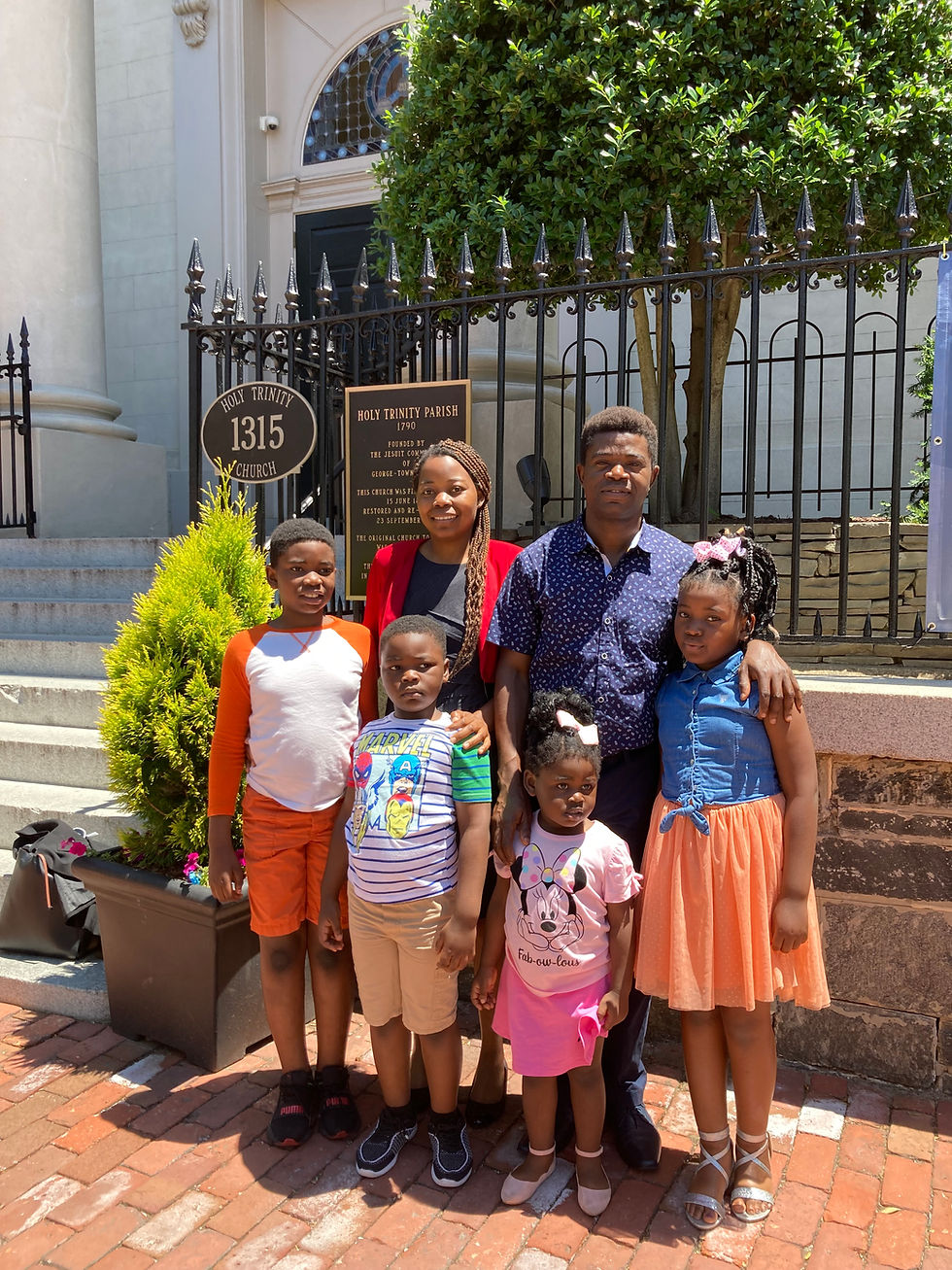Celebrating Sunday @ Home
- Holy Trinity Catholic Church
- Jun 10, 2020
- 3 min read
Updated: Jun 14, 2020
By David Pennington

True confession: I have not watched a prerecorded or livestreamed Mass since Lent. I can’t do it.
Like many of you, when we realized that churches would be closed, I did my research and populated a short list of livestreaming parishes that I know have strong music programs, prophetic preaching, engaged assemblies. They have great technological resources including designed streaming capabilities, multiple camera angles, and staff members devoted to multimedia technology and broadcast. And after two, all-Sunday marathons of watching liturgies hoping to find a livestreamed Mass that would help me pray and cope, I was reduced to scenes of empty churches, uninspired music, and priest-focused simulations of what Eucharist is and does.
Some weeks later, Andrew Lloyd Webber announced that he would make available a live recording of Phantom of the Opera (not my favorite show…) from Royal Albert Hall. I sent the link to my mom (her favorite show…) and several friends excited that we might have a pre-COVID-like moment of entertainment. While the production was terrific and the singing top-notch, this, too, was another simulation. I could push the pause button and refill my cocktail. I could chat on the phone while “Angel of Music” became background music. The action appeared only on my small screen and didn’t allow me to linger, to wonder at a moment, a note, a glance, an interaction. The experience was directed for me, not by me.
You see, while liturgy and theater are two very different things, they share a common element—they are all-sensory, all-encompassing, communal events. They are enacted, and then they are gone. Watching Mass online and watching theater online are not the same as participating in the Eucharist or going to the theater. In these moments, when we actually are participating in something larger than ourselves, we experience what the liturgical theologian, Kevin Irwin, calls “communal self-transcendence,” that is, we give ourselves over to the act in which we participate together. At liturgy, we give ourselves over to the mystery of Christ and participate in his life by the Word proclaimed and the Sacrament celebrated and received.
In our sacramental system, proximity and presence matter. Sacraments speak in the language of bodiliness. At sacramental celebrations, we eat and drink, lay hands, anoint, exchange rings, wash with baptismal water. We make the best of light, smells, music and sound. These ritual actions cannot be done at a distance. Watching Mass help to make us feel connected to our church and chapel, the Jesuits and other liturgical ministers, but it doesn’t give us the real means by which to participate at Mass. The truth is, we cannot go to Mass right now, and that’s painful. So what do we do instead?
While we are in our homes, it may be time to make our homes into the churches they should have always been. I encourage you to make use of the parish’s new Celebrating Sunday @ Home resource. Each week, there will be new material for you to create a simple Sunday celebration for you or your family at home. If you are praying with your family for the first time, it will likely be awkward. (I know it would be for me!) But, practice will lead you to a comfortable rhythm and structure that will eventually become very natural. It also will lead you to greater comfortability in praying alone or with your families.
Instead of watching Mass, I have begun to keep Sunday holy at home. I have created a small prayer space in my living room with a candle and a cross (I keep it there all week), and on Sunday, I carve out a particular time to read the Sunday scriptures or maybe pray Morning Prayer. I ask myself what God is trying to say to me and how I can concretely live it out. If I’m feeling a little stuck, I listen to a homily from one of the Jesuits or another homily. I pray for myself, my family and friends, those in need of prayer, say the Our Father, and give thanks to God for always being near. Then I try to do something outside to glory in the wonder of God’s creation or find some thing of beauty to remind myself of Beauty itself.
As we begin this long stretch of Ordinary Time, it may be the time to reach back to Advent and reap the fruit of all of the Advents we’ve celebrated together. During Advent, we proclaim light against darkness and hope against despair. We wait in anxious hope of the day that will break. We will be together to celebrate the Eucharist again, even if we don’t know the day or hour. Use this time to cultivate a home church which practices prayer. When the day breaks and we can return to the Lord’s Table, we’ll have an assembly of Catholics even better rehearsed in their role as leaders and creators of prayer and praise.







Comments